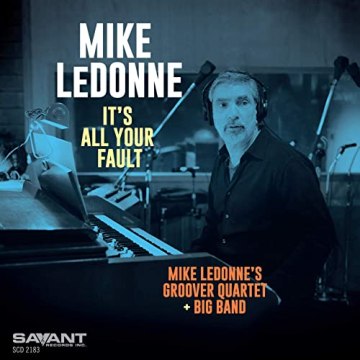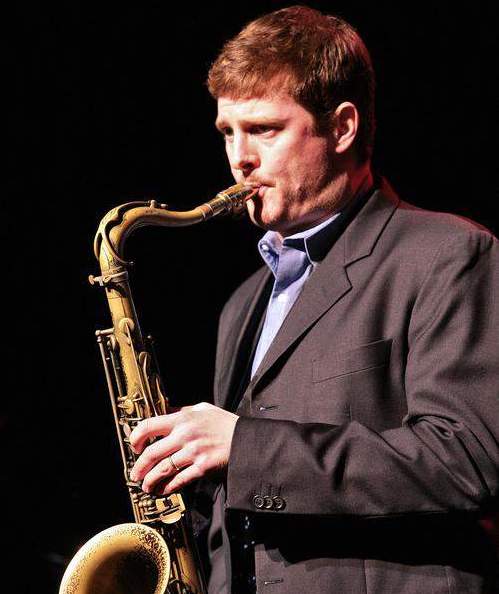BEST OF B3 2021! #1 – MIKE LEDONNE
You can feel that he feels the bop organ groove in his bones. Mike LeDonne gives it his all on his latest, It’s All Your Fault.
Personnel
Mike LeDonne (organ), Frank Green, Joe Magnarelli, Jon Faddis & Joshua Bruneau (trumpet), Eric Alexander & Scott Robinson (tenor saxophone), Jim Snidero & Steve Wilson (alto saxophone), Jason Marshall (baritone saxophone), Dion Tucker, Doug Purviance, Mark Patterson & Steve Davis (trombone), John Webber (bass), Joe Farnsworth (drums)
Recorded
on February 12 & 13, 2020 at Rudy van Gelder Studio, Englewood Cliffs, New Jersey
Released
as SCD 2183 in 2021
Track listing
It’s All Your Fault
Matador
Rock With You
Still
Party Time
Bags And Brown
Biggest Part Of Me
Blues For Jed
Appropriately, Mike LeDonne, like his heavyweight friends and colleagues, guitarist Peter Bernstein, tenor saxophonist Eric Alexander and drummer Joe Farnsworth on It’s All Your Fault, is a regular at club Smoke in New York City. LeDonne is a first-class burner. His well-known resumé includes associations with Milt Jackson, Benny Golson and Sonny Rollins. He has maintained extraordinary careers on piano and organ and has released numerous records with his Groover Quartet.
The Groover Quartet is present on his latest outing on Savant, which is dedicated to Lonnie Smith – it’s all ‘his’ fault that he hipped so many musicians to the beauty of Hammond playing. The band is expanded with a big brass and reed ensemble, and LeDonne feels like a fish in the water. He’s plainly on fire and duly stimulated by the punchy and sassy parts of the ensemble members. They’re like masseurs and trainers that have prepared their world-class athlete for his Olympic game. This record, recorded at Rudy van Gelder Studio in New Jersey, oozes the classic organ jazz feeling and it’s over before you know it.
LeDonne masters all aspects of the art of B3 down to the last detail and occasionally even reaches back to the orchestral style of pioneer Wild Bill Davis in a live setting. “Davis bits” tastefully permeate LeDonne’s version of Lionel Ritchie’s ballad Still, but It’s All Your Fault mainly consists of hardcore hard bop. Delicious, hard-swinging stuff. LeDonne performs thrilling versions of Grant Green’s Matador and Lee Morgan’s Party Time. In the flexible tradition of soul jazz, the organist transforms pop into jazz and swings merrily and funky on a shuffle version of Michael Jackson’s Rock With You, a long-time staple of LeDonne’s live sets.
He penned a couple of fine originals. Among them, Bags And Brown (guess who), a catchy tune and arrangement that brings back to life the vibe of the epic Ray Charles Band and its musical director Hank Crawford. Speaking of bands, LeDonne’s band of New York brothers sounds fresh, tight and driven and sparks fly off Alexander and Bernstein’s solo’s. And LeDonne? Well, he plainly remains the unbeatable modern jazz organist.
Mike LeDonne
Find It’s All Your Fault on Amazon here.








